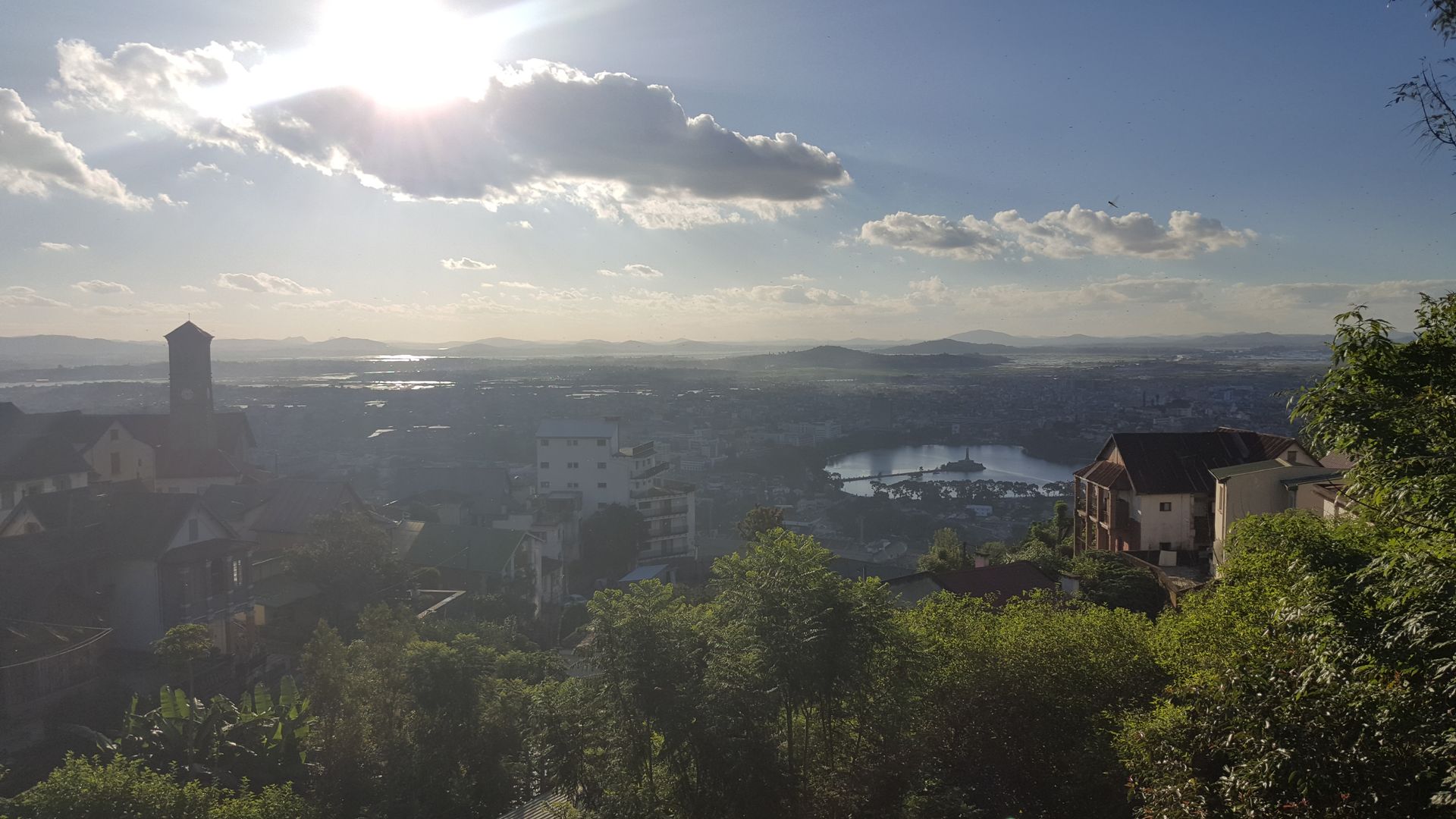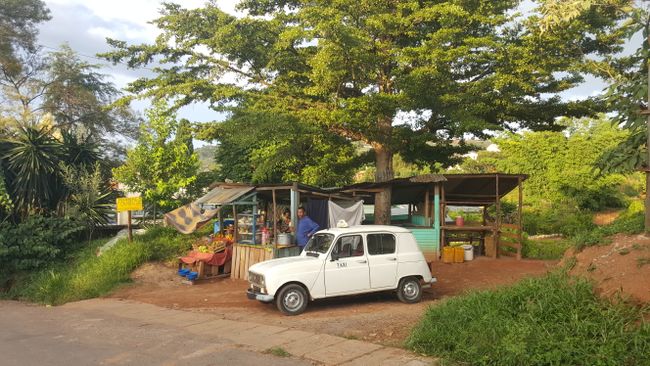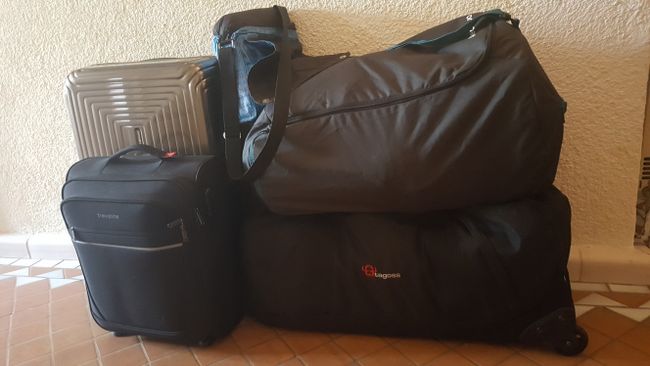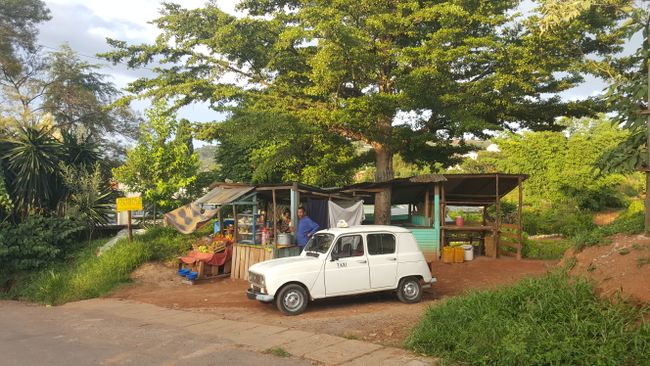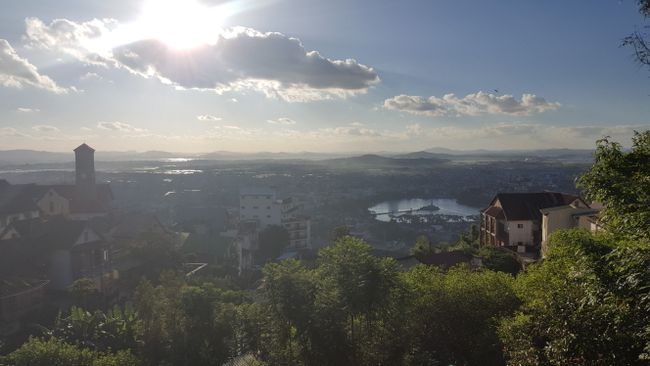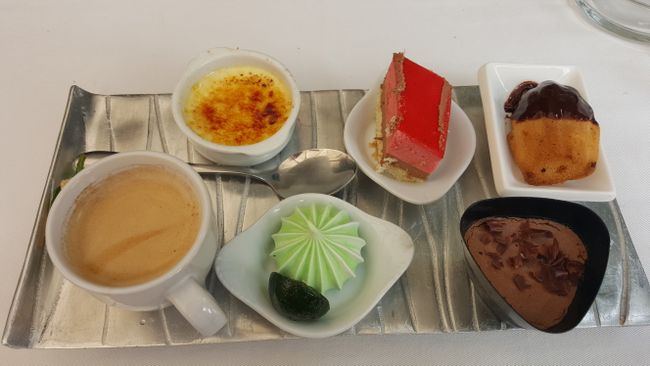And why did you choose Madagascar?
வெளியிடப்பட்டது: 20.03.2018
செய்திமடலுக்கு சந்தாதராகவும்
'Hello! You're new, aren't you?' 'Yes, exactly. Hello, I'm Anna.' 'Hi, I'm XYZ. What project are you working on? ... Where did you work before? ... And why did you choose Madagascar?'
That's how almost all of my conversations started in the first few days. The question about the project was quite easy to answer. 'The one with aquaculture, where the boss left recently.' 'Oh yes, you're the fish woman! I've heard about that.' Apparently, the grapevine worked perfectly here too. The next question was a bit more difficult. With the 7 weeks of preparation time in Germany, I was already sensitized and knew that development workers usually should have at least 2 years of professional experience and my research trips and student jobs did not count. I haven't found a formulation yet that doesn't result in astonished and confused looks. At the latest with the last question, the looks become somewhat sympathetic. I don't (yet) fully understand that. I didn't choose the country, I chose the job. I didn't know much about the country and maybe that was better. Although all the data and facts probably wouldn't have helped me either. I couldn't imagine what it's like to live in one of the poorest and most corrupt countries in the world. In three years, maybe I can say more about that.
Well, now I'm here. Madagascar. An island that everyone has heard of but hardly anyone knows anything about, except that the nature is supposed to be so beautiful.
I arrived in Antananarivo on March 3rd at 3:00 p.m., just a few days before my 30th birthday, with 3 large bags. My mood was somewhat dampened. Even after 4 weeks of intensive French course, my French was still very moderate, I had no idea what to expect, and a few days earlier I was informed that my supervisor would be leaving. As if the whole endeavor wasn't challenging enough already. Fortunately, my interim supervisor turned out to be very nice and competent. I was picked up from the airport and my first few days were scheduled. Due to the relatively spontaneous change in leadership, there were a few administrative confusions, but otherwise everything went well. My passport was forwarded to the ministry to change my tourist visa to a long-term visa. In a few days, I should have it back and continue to Antsirabe. Well, from the few days, it turned into over three weeks.
So for now, I was stuck in the capital, Antananarivo (short: Tana). Tana is noisy, crowded, dirty, polluted, like all big cities are, and super confusing due to the many hills. But somehow, it's not that bad. The traffic almost comes to a standstill during rush hour, and the way home of 4 km can take up to four hours at worst, but everyone is still quite civilized. Honking is mainly used as a signal for overtaking or as a warning at curves and intersections, the noise level is much higher in some (southern) European cities. Driving fast is not possible here because of the narrow streets and countless potholes. At night, the most noise comes from the street dogs and the crowing rooster next door. For me, the most exhausting thing about Tana was/is the incredibly difficult to assess security situation. If you talk to a Malagasy person, it's incredibly dangerous both during the day and at night, and you will be attacked almost at every corner. If you talk to other expats, you should be careful during the day and use common sense, but it would probably be better not to be on foot at night. So, once it gets dark at 6:00 p.m., you end up taking a lot of taxis. The taxis are usually dilapidated car bodies that have been brought back to life with a lot of craftsmanship and a touch of magic. I quite like the cars, but I still find it fascinating that everyone considers them safer than walking. It happens quite often that the engine dies halfway and we'd better not talk about the brakes. But there is simply no alternative. After a week, I moved to a hotel in the city center and walked to the office every day without any problems. The only really unpleasant experience I had was with the police. They like to stop taxis, check papers, and hope to collect a "fine". Unfortunately, my passport was at the ministry and I didn't have a certified copy... Now I understand why people in some countries prefer to avoid the police.
Of course, life in the capital also has its good sides. During this time, I met many expats and ate my way through all the restaurants. And you can actually buy almost everything you need. The big supermarkets are full of French and South African products.
But I was very happy when the time came shortly before Easter: I finally got to go to Antsirabe! My first impressions of that will be coming soon.
Best regards,
Anna
செய்திமடலுக்கு சந்தாதராகவும்
பதில் (1)
Ralf
Und dann wie geht es weiter ?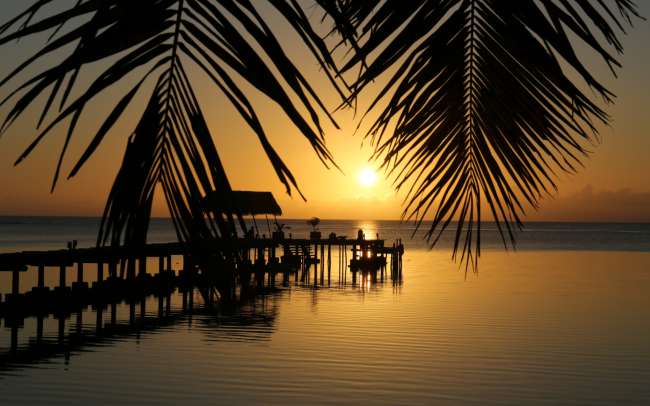
பயண அறிக்கைகள் மடகாஸ்கர்
